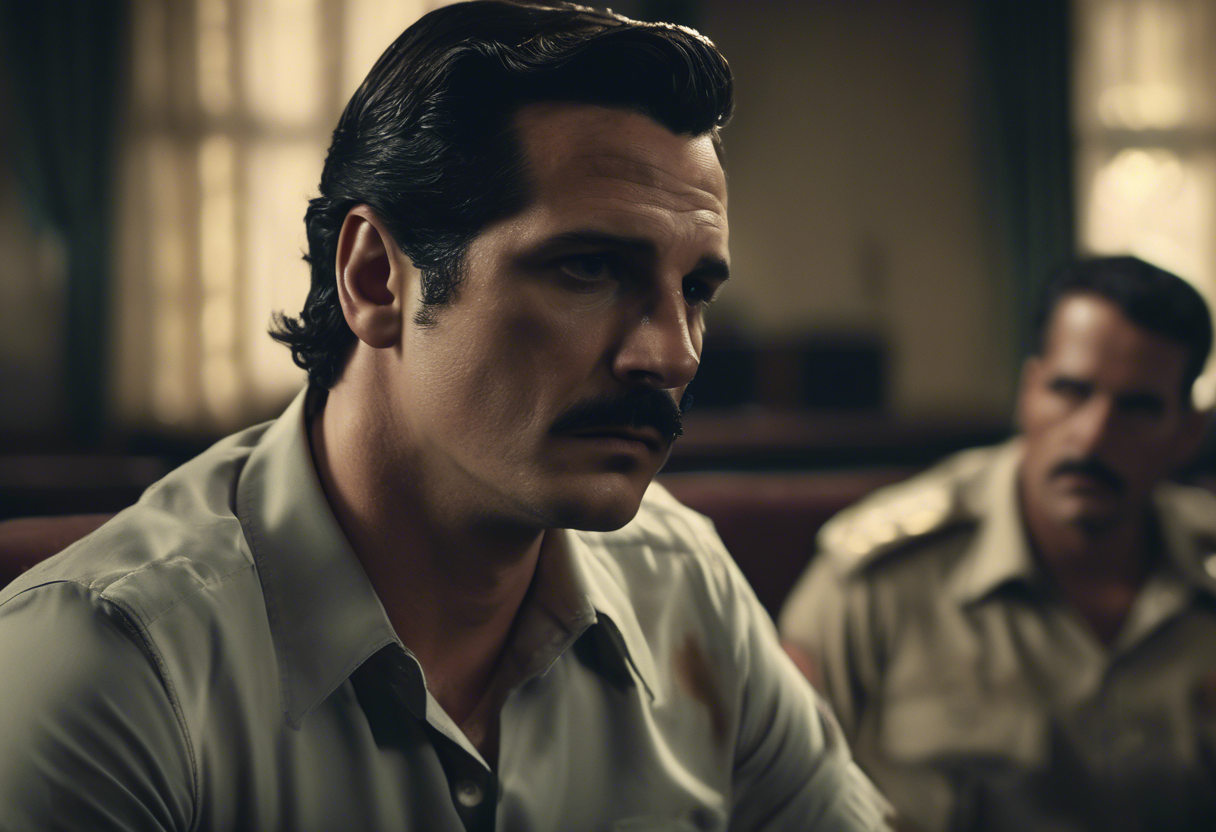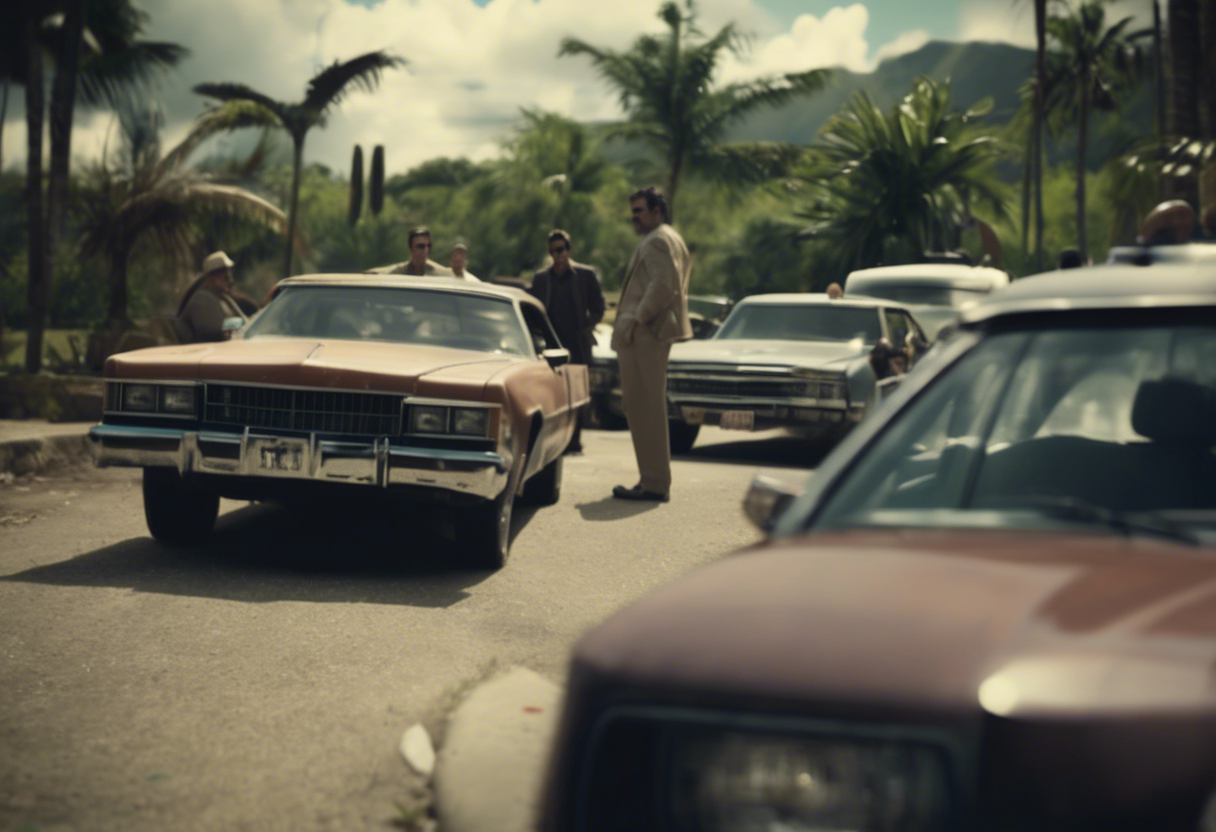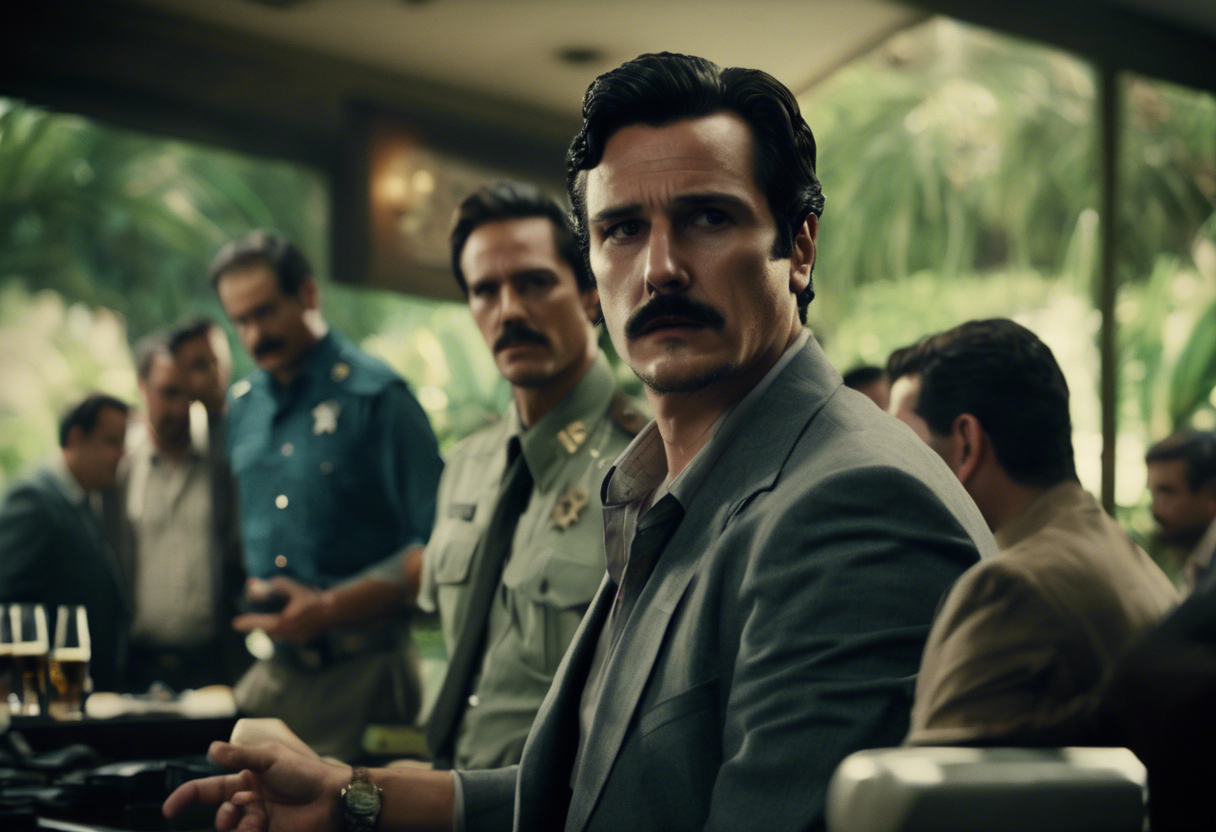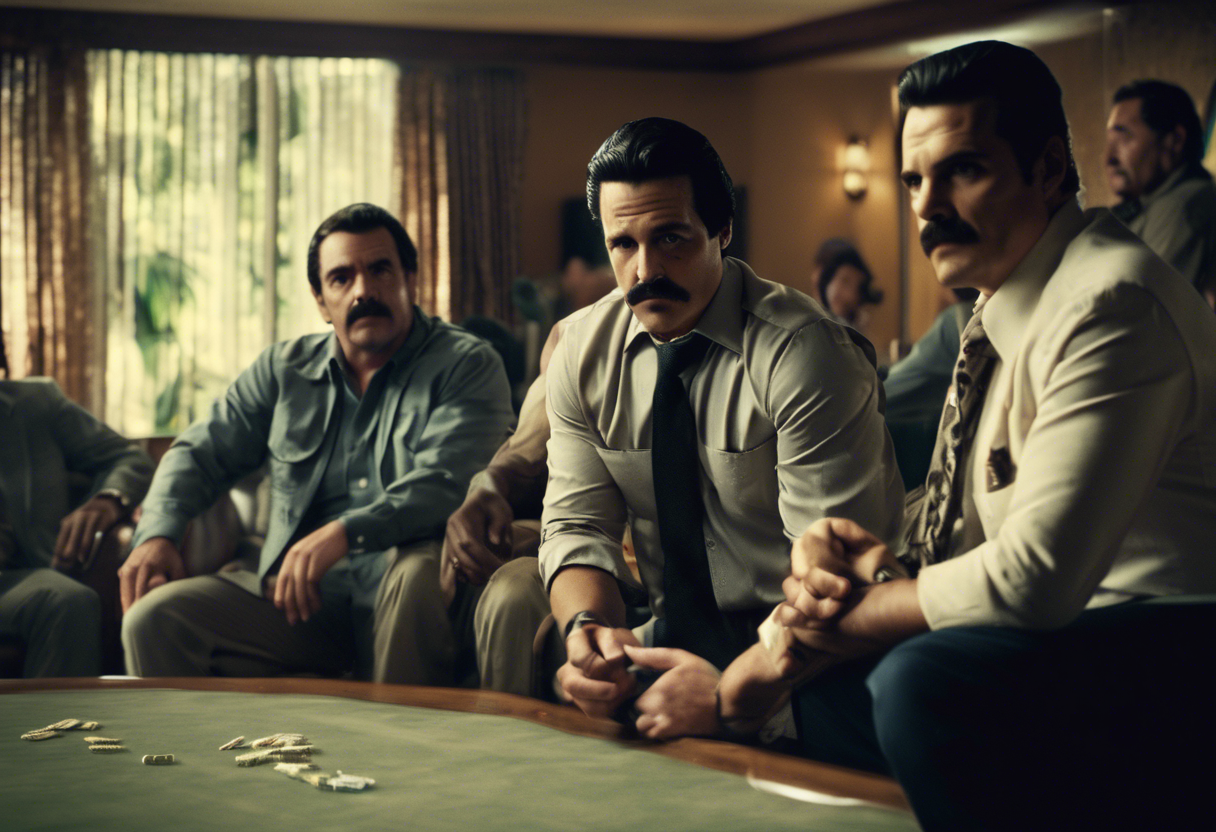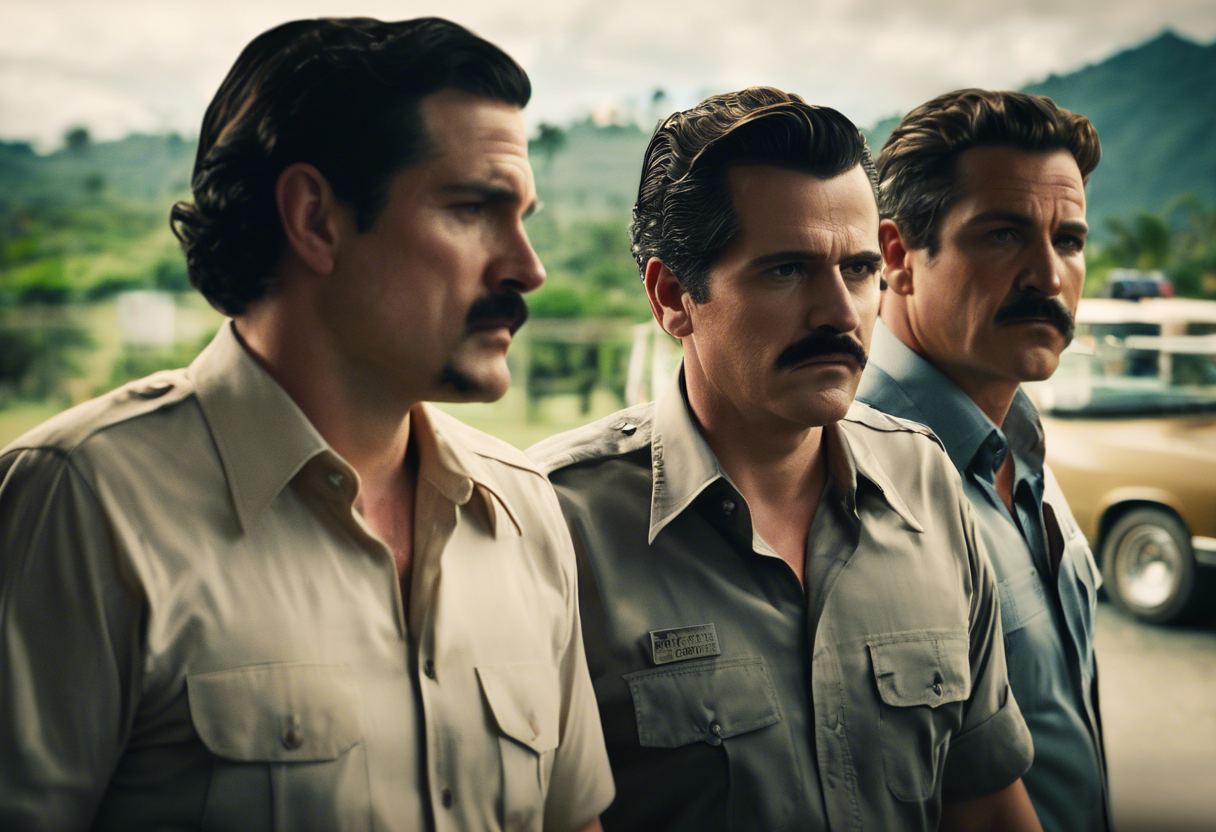Contents
Narcos Season 1: Episode 3 – The Men of Always
Introduction
"Narcos" is a Netflix original series that delves into the life and reign of Pablo Escobar, the notorious leader of the Medellín Cartel. Created by Chris Brancato, Carlo Bernard, and Doug Miro, the show is known for its meticulous attention to historical detail and its gripping narrative. The third episode of the first season, "The Men of Always," is directed by Andrés Baiz and written by Dana Calvo and Chris Brancato. This episode stands out for its intense focus on the political ambitions of Pablo Escobar and the escalating conflict between Escobar and the DEA.
"Narcos" is notable for its blend of historical accuracy and dramatic storytelling, making it a standout in the crime drama genre. The show’s production involved extensive research and consultation with individuals who lived through the era of Escobar’s reign, adding a layer of authenticity that sets it apart from other crime dramas.
Plot Summary
"The Men of Always" opens with DEA agents Steve Murphy and Javier Peña grappling with the aftermath of their failed attempts to disrupt Pablo Escobar’s operations. The episode begins with Murphy and Peña trying to understand how the cartel obtained Murphy’s home address, highlighting the pervasive corruption and infiltration that the DEA faces.
Meanwhile, Pablo Escobar is making significant strides in his political career. He bribes Fernando Duque, a lawyer and member of the New Liberalism party, to facilitate his entry into politics. Duque convinces Minister of Justice Rodrigo Lara Bonilla to allow Pablo to run as an alternative candidate in Antioquia, despite Lara’s reservations about Pablo’s involvement in narcotics trafficking. Duque argues that Pablo’s wealth and influence could benefit the party, potentially securing an additional seat in Congress for New Liberalism. Lara, though wary, agrees to the proposal[2][4].
As Pablo’s political ambitions take shape, the DEA becomes aware of his plans and decides to let him run for office, hoping to gather evidence to incriminate him later. They discover a mugshot of Pablo from an earlier encounter with a DAS agent, which they believe could be crucial in their case against him. However, their efforts are complicated by the fact that Pablo’s rise to power is swift and calculated. Jairo Ortega, the initial candidate, wins the election by a landslide but immediately steps down, allowing Pablo to take his place in Congress[2][4].
The episode delves into the depths of government corruption as Murphy and Peña attempt to derail Escobar’s political career by proving his involvement in narcotics. They encounter numerous obstacles, including corrupt officials and informants who are on both the cartel’s and the DEA’s payroll. One such informant, Suarez, provides them with intel that nearly leads to the arrest of a key cartel member known as "Poison," but Suarez’s dual allegiance foils their plans[4][5].
A pivotal scene in the episode shows Pablo smoking in the mountains, reflecting on his achievements. This moment, narrated by Murphy, captures Pablo’s immense ambition and his vision for a future where he could be a powerful figure in Colombian politics, potentially even the president. This scene underscores the complexity of Pablo’s character, highlighting both his charisma and his ruthless determination[2][4].
The episode also explores the personal and professional tensions between Murphy and Peña. Their differing approaches to tackling the cartel create friction, but their shared goal of bringing down Escobar keeps them aligned. The DEA’s efforts, however, are consistently thwarted by the cartel’s extensive network and the corruption that permeates every level of Colombian society.
As Pablo’s political star rises, so does the tension between him and his adversaries. Minister Lara, who had initially supported Pablo’s candidacy, begins to realize the gravity of his mistake. The episode sets the stage for the eventual confrontation between Lara and Escobar, foreshadowing the tragic consequences that will unfold in future episodes[2][4].
Themes and Symbolism
"The Men of Always" is rich in themes that reflect the broader narrative of "Narcos." One of the central themes is the corrupting influence of power and money. Pablo’s ability to bribe his way into politics and the DEA’s struggles with corruption within their own ranks highlight the pervasive nature of this issue. The episode symbolically portrays the rot of corruption through characters like Fernando Duque, who are willing to compromise their integrity for personal gain[2][5].
Another significant theme is the ambition and the American Dream. Pablo’s ascent from a humble background to a position of immense power is a twisted version of the American Dream. His ambition is both admirable and terrifying, symbolizing the darker aspects of human nature when driven by an insatiable desire for power and recognition[2][4].
The episode also explores the theme of identity and how it is shaped by one’s actions and environment. Pablo’s transformation from a drug lord to a congressman is a stark example of how one can reinvent oneself, but it also underscores the tension between his public and private selves. This dichotomy is a recurring theme throughout the series, highlighting the complexities of human identity[2][4].
Cultural Impact
"The Men of Always" was well-received by audiences for its gripping portrayal of Pablo Escobar’s political rise. The episode’s focus on the intersection of crime and politics resonated with viewers, offering a unique perspective on the historical events that unfolded in Colombia during the 1980s. The episode’s influence can be seen in subsequent TV shows and films that explore similar themes of corruption and power struggles.
The episode has also been referenced in various forms of media, often as a benchmark for depicting the complexities of real-life figures like Pablo Escobar. Its impact on pop culture is evident in the way it has contributed to the public’s fascination with true crime stories and the lives of infamous figures[4].
Critical Reception
Critics praised "The Men of Always" for its intense focus on Pablo Escobar’s character and the historical accuracy of its portrayal. Wagner Moura’s performance as Escobar was particularly lauded for capturing the nuances and charisma of the real-life figure. The episode’s direction and writing were also commended for their ability to balance action, drama, and political intrigue[2][4].
However, some critics noted that the episode’s predictability, given the historical context, slightly diminished its impact. Despite this, the episode was generally well-received for its engaging narrative and strong character development[4].
Legacy
"The Men of Always" remains a significant episode in the "Narcos" series, marking a pivotal point in Pablo Escobar’s rise to power and the escalating conflict between him and the DEA. The episode’s exploration of themes such as corruption, ambition, and identity continues to resonate with audiences.
Its influence can be seen in subsequent episodes and seasons of "Narcos," as well as in other TV shows and films that have followed in its footsteps. The episode’s historical accuracy and dramatic storytelling have set a high standard for crime dramas, making it a lasting contribution to the genre[2][4].
References
- https://ew.com/recap/narcos-season-1-episode-3/
- https://www.theyoungfolks.com/television/63052/tv-review-narcos-episode-3-the-men-of-always/
- https://narcos.fandom.com/wiki/The_Men_of_Always
- https://www.queerhorrormovies.com/narcos-1×03-review-the-men-of-always/
- https://www.pogdesign.co.uk/cat/Narcos/Season-1/Episode-3

